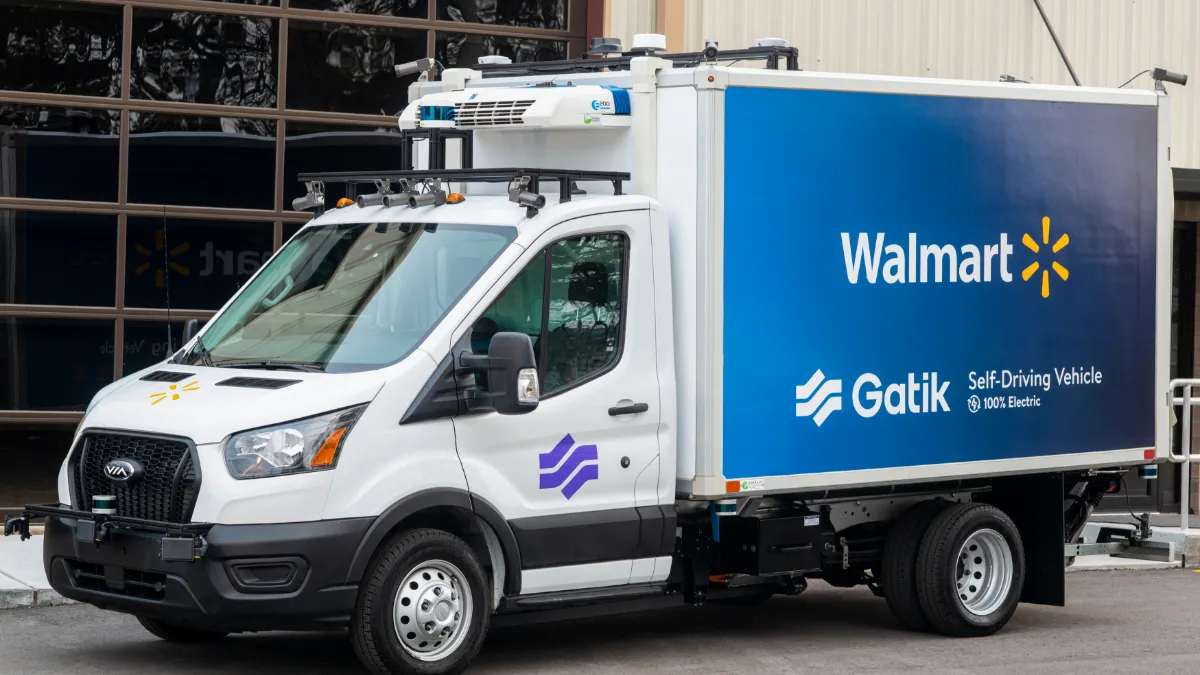With the release of more federally mandated information regarding layoffs and facilities closures, it’s clear that Walmart is downsizing a fulfillment network that not long ago was growing quickly.
Last week the retail giant confirmed that it has “adjusted staffing levels” at fulfillment centers “in select markets.” Specifics are slowly being made available via state WARN notices. The Worker Adjustment and Retraining Notification or WARN Act is a federal labor law that requires employers with 100-plus employees to give at least 60 days notice of facility closures or mass layoffs. New Jersey has extended that to 90 days, and Retail Dive previously reported that Walmart is laying off 201 workers at a facility in Pedricktown, according to a WARN notice filed with the state.
Less than a year ago, Walmart touted the Pedricktown facility as one of a handful of next-generation fulfillment centers that alone “could provide 75% of the U.S. population with next- or two-day shipping on millions of items, including Marketplace items shipped by Walmart Fulfillment Services.”
According to a WARN notice sent to Florida officials, Walmart is also downsizing its Davenport facility and permanently laying off 400, bumping the number of layoffs in e-commerce fulfillment to more than 600. That center, which opened in 2017, features two buildings on a 50-acre campus. A field operations center in Jacksonville is also permanently laying off 69 workers, per the state’s WARN notices.
A Walmart spokesperson confirmed the layoffs and said affected employees have 90 days of paid time as they look for new work, but did not provide specifics about which facilities are closing or shrinking. By phone, the spokesperson declined to elaborate on those details or any future plans to close or downsize other facilities.
In February Walmart said it would close its e-commerce-only stores, in part because it has added pickup and delivery services to thousands of its full-service locations. The spokesperson on Wednesday reiterated that its expanding store fulfillment is a factor, though not the only factor, in the downsizing at some fulfillment centers.
Last year, Walmart laid off 1,500 workers at a fulfillment center outside Atlanta, which opened to great fanfare in 2015. Walmart’s Q4 online sales rose 17% year over year and 18% compared to 2020; for the full year, online sales rose 12% year over year and 23% compared to 2020, per a company press release. Operating income fell 5.5% in the quarter and 21.3% for the year, while cost of sales rose 8.6 % in the quarter and 8.1% for the year.
Also last year, rival Amazon canceled or delayed dozens of warehouses, an effort to pull back on what had been plans for a major increase in its fulfillment capacity. The expansion plans were a response to a surge in e-commerce during the height of the pandemic.
While online sales continue to rise, that growth has dropped off in the last several months as consumers have returned to shopping in stores and cut back on discretionary spending on goods, in part due to inflation and in part because many are prioritizing services and experiences.














